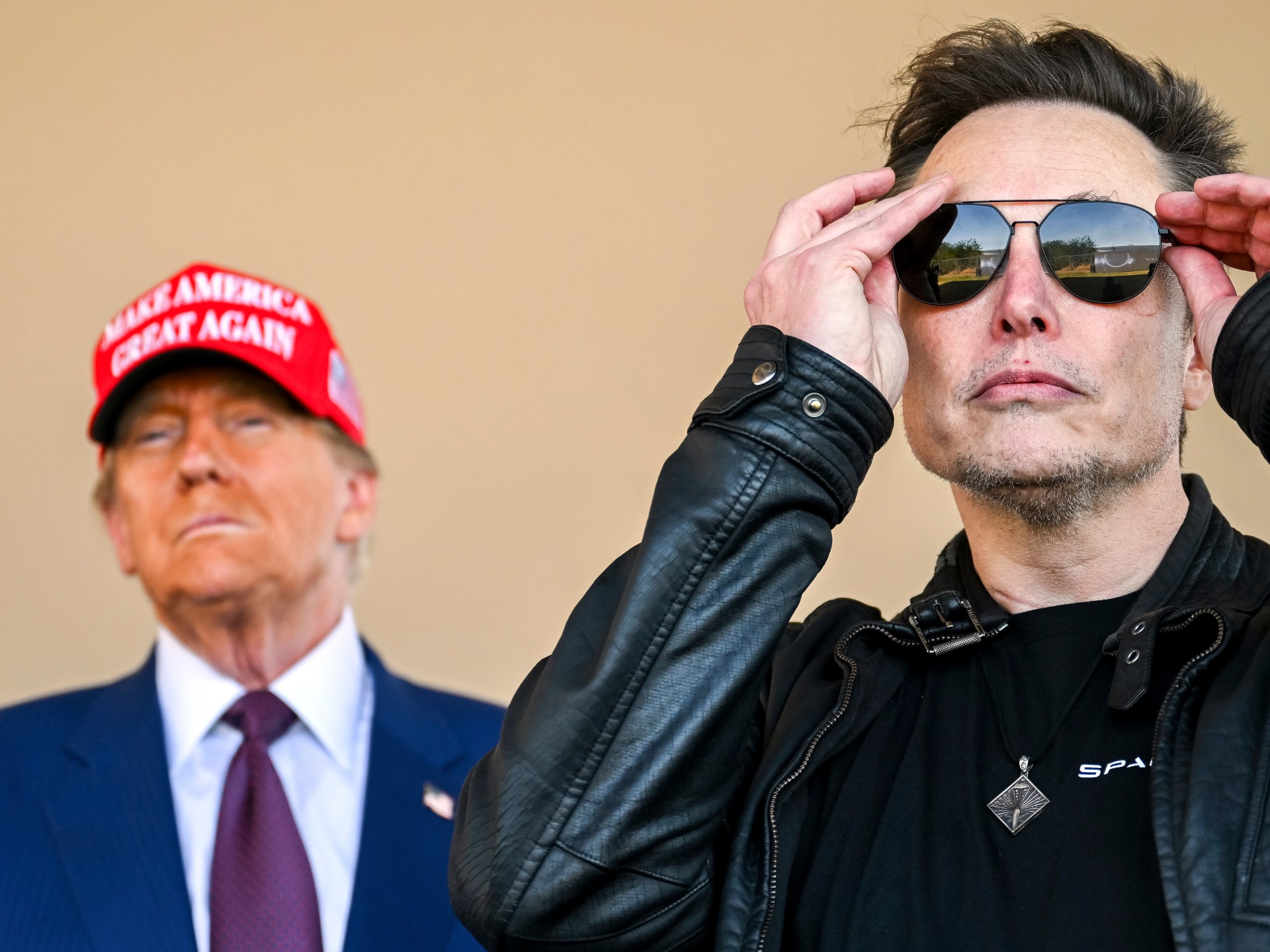Musk’s rise is symptomatic of our neo-feudal capitalist times | Opinions

Until recently, it was authoritarian capitalist regimes such as those in Russia and China that were characterised as plutocratic: Putin’s government, well known to be dominated by powerful oligarchs such as Yuri Kovalchuk, Gennady Timchenko and the Rotenberg brothers; and China’s Communist Party, which over the last couple of decades has enabled the flourishing of the country’s now famous 1,000 billionaires, including the likes of Zhong Shanshan and Ma Huateng.
But today, it is liberal democratic states that are increasingly taking on this plutocratic feature. Donald Trump’s incoming administration in the United States is the latest specimen – his “billionaire boys club” is stacked with Elon Musk, Howard Lutnick and Vivek Ramaswamy, among several others. Ramaswamy and centibillionaire (with a net worth of $100bn or more) Musk are to be appointed as heads of a new “Department of Government Efficiency” aimed at cutting some $2 trillion in “government waste” and slashing “excess” state regulation.
Similar moves have also been taking place under Narendra Modi’s government in India, which has cosied up to a handful of tycoons such as Mukesh Ambani, Gautam Adani and Sajjan Jindal, with the goal of promoting “business friendly” policies and further neoliberalising the economy. And such a turn in favour of the “billionaire raj” (the rule of billionaires) is one to be found repeated across several other liberal democracies around the world, including Brazil, South Korea, Taiwan and Turkiye.
So how are we to understand this global shift towards plutocracy, in which billionaire oligarchs not only have a stranglehold on the economy but, unprecedentedly, also dominate politics?
An important explanation lies in what some analysts view as a structural change in the global economy from neoliberalism, which prioritises “free market” mechanisms as a way of addressing economic as much as social problems, towards neo-feudalism, which describes a time of extreme inequality under which a growing underclass services the needs of a handful of the mega-rich – or as the academic, Jodi Dean, puts it: “a few billionaires, a billion precarious workers”.
This neo-feudal setup is evidenced by today’s unprecedented rise of global inequality. Since the 1980s, income inequality, for example, has increased sharply across the world. This trend has been observed in almost all leading industrialised nations and major emerging markets, which collectively represent approximately two-thirds of the global population. The increase has been especially pronounced in the US, China, India, Brazil and Russia, precisely the ones in which, as mentioned above, plutocracy reigns. In India, the gap between the rich and poor is wider now than it was under British colonial rule.
Perhaps most emblematic of such neo-feudalism is what is happening in the current “platform economy”, under which a small number of tech companies, eg, Apple, Google, Meta, Uber, and Airbnb, have grown increasingly super-wealthy and exploitative. The latter have enriched their owners/shareholders, turning them into (centi)billionaires by relying mainly on low-cost, sweatshops, and/or precarious labour, as well as favourable state tax and investment incentives.
And it is precisely the need to ensure advantageous tax and investment policies – and the need to continue to generate massive profits – that helps explain the increasing involvement of business tycoons in government today. The likes of Trump, Musk, Adani and Berlusconi may well present themselves as men “of the people”, but their policies are intended mainly to advance corporate profits and market shares by reducing taxes, providing attractive business incentives, protecting domestic industries threatened by foreign competition, and cutting government environmental and investment regulations that they see as standing in their way.
Neo-feudal economics/politics departs from neoliberalism in the greater degree of coercion required to generate the historically unprecedented profits that have enabled the rise of global billionaires. Such authoritarianism is needed to ensure low-cost and precarious labour and to keep state oversight and regulation of the economy to a minimum and consistent with global financial and corporate power.
But if neo-feudalism is indeed the way of the world today, if billionaire plutocracy is on the rise, it likely means that liberal democracies may be heading increasingly towards authoritarian forms of government. Neo-feudal leadership is what appears to be required by our “gig” and “platform” economies.
Is this to say that the authoritarian capitalism of Russia and China may represent not the exceptions to, but the future of, liberal democracy?
The views expressed in this article are the author’s own and do not necessarily reflect Al Jazeera’s editorial stance.





